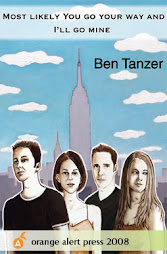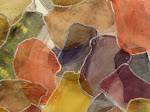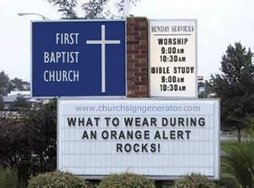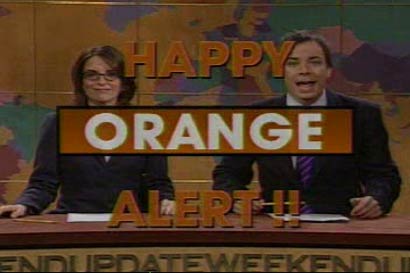
Shalloboi
Have you ever listened to song and suddenly heard a sound that you were not expecting? A sound so overpowering and beautiful that you had figure out how it was created? Well, then you may not be listening to the right music. When I first heard the fifth studio album by Tyler Ritter and Stefanie Goodwin (aka Shalloboi) I was completely blown away. If I was asked to sum up their sound in one word it would be reverb. Reverb like a thick and pulsating cloud slowly creeping through words and over drums. A reverb that acts like an instrument, and pulls you into every song on, Down To Sleep.
Have you ever listened to song and suddenly heard a sound that you were not expecting? A sound so overpowering and beautiful that you had figure out how it was created? Well, then you may not be listening to the right music. When I first heard the fifth studio album by Tyler Ritter and Stefanie Goodwin (aka Shalloboi) I was completely blown away. If I was asked to sum up their sound in one word it would be reverb. Reverb like a thick and pulsating cloud slowly creeping through words and over drums. A reverb that acts like an instrument, and pulls you into every song on, Down To Sleep.
Tyler Ritter has been performing as Shalloboi since 2001, and released his first album, Blue-eyed, in 2004. Stefanie joined him in 2005, a together they have found inventive ways of recording in old buildings and condemned stairwells. The process is almost as fascinating as the sound, and the vigor and passion that Tyler has for his music trumps all. Recently relocating to Chicago, this duo continues to make album after album. The magical part of it all is that they believe so much in these song that they are giving them away for free on their website and at cllct.com. They also sell their cds, and after listening to the first song on Down To Sleep I don't know how you could not purchase the entire album.
Recently, Tyler was kind enough to answer a few of my questions.
Orange Alert (OA): Down To Sleep is your fifth album. What can you tell us about the album? What were you trying to accomplish?
Tyler Ritter (TR): 'down to sleep' has been floating around for about 10 years now- it was based around a set of songs i started when i was 18. 'to the sky,' 'ahn' and the title track were all on the first version, but sounded very different back then because they were some of the first 4-track recordings that i made that i ever took very seriously. the basic idea was to use some of the production techniques that kevin shields used on 'loveless' but to combine that influence with others. it sat on a shelf for a while, but i always had it in the back of my mind that when the time was right i'd return to those songs and those ideas and by then they would have changed and more songs would've come about that would fit into that cycle of songs. all of the shalloboi albums have been done one on top of the other- 'petals' and 'blue-eyed' were done almost at the same time. once 'petals' was finished i came back to 'down to sleep' and started working on the loops. the original idea was to make ridiculously symphonic loops- basically fill up the 8-track with sounds that would be mixed and sampled- 'to the sky' and 'angels floating on the head of a pin' represent this idea well. once we'd started it we had started using live percussion and gotten tired of using loops and new songs that were being added began to reflect this more so we had to bide our time so that we could buy more microphones and equipment to record live drums with which we'd never done before. a lot of the reason the album took so long in general is because i was trying to get ahold of nicer equipment- using tube amps for example- and it took time to raise the money, but eventually it paid off. all we were doing during the last two months was recording drums. what i was trying to accomplish changed during the course of the album a lot. i think initially i didn't want to use any live strings on it and by the end i'd written more songs that called for live strings until they became a large part of some of it and a key element i wanted to explore because the juxtaposition of organic melodic elements against the loud and very droning, almost formless guitars became a key element that really made the songs work much better which is where things like the glockenspiel came into play. the first version of 'ahn' was done on keyboards and sounded like a siouxsie and the banshees song and i just tried a version of it strumming the keyboard part on a guitar and singing it at the same time. when i was recording with billy (our cellist) i had him play the parts on cello thinking that it wouldn't end up being used. i was sure it wasn't going to be used clear up until about march when the violin was added. the main aim was to keep things organic. all of the effects were achieved in a natural way. a lot of the guitar sounds are accomplished with the use of volume and some techniques for recording guitars that kevin shields used a lot- i.e. taking two amps and set them up facing each other and miking all of the spots where the texture that you're after is occurring. the vocal doubling effects were something i'd heard about kevin shields doing as well and i also always loved the way that elliott smith did doubling. all of the reverbs are recorded by capturing ambient spaces where it occurs naturally. even reverbs on the loops were recorded that way. the exception is the reverse reverb that is on the guitars- that actually does come from an effects processor. at the same time we've always wanted to capture a moment on our recordings rather than spend hours and hours and take after take getting parts absolutely perfect. while things took a long time to set up and tracks took a long time to finish the individual parts were always done very quickly so as to keep the performances and the emotions fresh. 90% of what's on the album is first take. there are even a few songs built on first takes of first attempts.
OA: One of the most impressive aspects of this album are the massive sections on reverb. Can you talk about the process of organically capturing that sound?
TR: there's a stairwell in our apartment building that doesn't lead anywhere- the exit is sealed off so no one really uses it because there's another stairwell down the hall and an elevator. a lot of the reverbs were recorded in there. we'd sing in our bedroom ahead of time, double it 10 times and then i'd bring all of the recording equipment and an amp into the stairwell and run the vocal tracks through the amp and record the reverb with a mic that was set up a few floors up. some of the earlier tracks were recorded while we were living in an apartment that was above the congress theater. the landlord owned the entire complex, so the residents were allowed to use the theater when it wasn't booked. i'd just walk around and find different spaces with high ceilings and i'd put an ambient mic up as high as possible and sing the 10 vocal tracks live. 'angels floating on the head of a pin' was done there mostly- the vocals and the loop at least. there are a lot of outtakes that were done that way. before we moved to chicago we were staying with stefanie's parents and we recorded a few vocal tracks in one of their showers- stefanie's vocal from 'to the sky' ended up coming from one of those times.
OA: What is the biggest struggle for a musician who self-releases his or her product?
TR: getting people to pay attention because while you're free to do whatever you want you also are completely on your own as far as how you're going to get people to notice it. also you have to make all of the mistakes you possibly can to learn about how to go about getting people to notice your music. not to mention to the sheer amount of money you have to pour into it.
OA: How did you decide to join cllct and make your music available for free download?
TR: all of our music was already available for free on our website. it's also available to download on last.fm. when i heard about cllct it just seemed like a logical thing to do. it's so user-friendly from that standpoint that it's ideal to use as a promotional device particularly for something like an album because while people are able to pick and chose from the albums, the album is there to stream in its entirety so it can sometimes save you from sending someone a promo cd who isn't going to bother to write about it.
OA: What are your thoughts on the music scene here in Chicago? Are there an adequate amount of venues and opportunities?
TR: it has been astronomically easier for us to get shows here than it has been for us in kansas city or in portland- especially portland. in relation to portland there are proportionally about the same number of venues, but since portland is a much smaller city (and because people from all over the country flock there, particularly bands) it is much harder to get your foot in the door if you don't know anyone who lives there because people who have lived there their whole lives are very wary of people who have moved there. that isn't really the case in chicago- most places are willing to give you a chance if they think you're interesting enough. it's possible to just try different places until you find venues that suit what you do. we hit a wall last year where we were kind of lost in a sort of nether-world of playing shows but in the end it was just a question of us being too immersed in making our album and didn't have as much time or energy to devote to booking shows. chicago also seems to be the kind of place where persistence will pay off, which is a new thing for us. there are also some incredibly enthusiastic and helpful people who go out of their way to find and help new bands- namely flabby hoffman. no one had ever offered us a show out of the blue before he contacted us.
OA: What's next for Shalloboi?
TR: we're playing our record release show at the empty bottle on september 3rd, and then going on a short west coast tour in mid-september. we have an ep that will probably be finished by november called 'dandelions.' it will kind of be a bridge between 'down to sleep' and the next record which we've also started. the ep should be out by the end of this year, hopefully. the next record will be incredibly stripped-down and minimal and the songs will be more subdued. there won't be any distortion on it at all. the songs are also much shorter and have more empty space and room to breathe. i've gotten back into using a bow on the guitar with this set of songs. i believe that it will be called 'all hope is blind.' after we get back from our tour we are trying to get a quiet(er) show set up at a diy space like elastic where we will play with a string trio and perform a handful of songs from that new record as well as older songs with ornate strings that we've never been able to play live properly. after that we're going to kind of take it easier next year- maybe go to sxsw in march and then do a short east coast tour in september after we release the record. it will be a vinyl-only release- which is something i'd like to do for the rest of our releases- just a handscreened cover, vinyl and a cdr copy of the record included. i've written and demoed songs for about three or four more records besides the two impending releases.
Bonus Questions:
OA: Coffee? If yes, where can you find the best cup in Chicago?
TR: definitely coffee. i work at beans and bagels in ravenswood. the best cup in chicago is at metropolis, which is around the corner from where we live.
OA: What was the last great book you have read, and where is your favorite book store?
TR: 'home land' by sam lipsyte. i think probably quimby's in wicker park (in chicago). the best anywhere is powell's in portland. stefanie- the 'johnny the homicidal maniac' graphic novel by jhonen vasquez. powell's on burnside in portland.
Tyler Ritter (TR): 'down to sleep' has been floating around for about 10 years now- it was based around a set of songs i started when i was 18. 'to the sky,' 'ahn' and the title track were all on the first version, but sounded very different back then because they were some of the first 4-track recordings that i made that i ever took very seriously. the basic idea was to use some of the production techniques that kevin shields used on 'loveless' but to combine that influence with others. it sat on a shelf for a while, but i always had it in the back of my mind that when the time was right i'd return to those songs and those ideas and by then they would have changed and more songs would've come about that would fit into that cycle of songs. all of the shalloboi albums have been done one on top of the other- 'petals' and 'blue-eyed' were done almost at the same time. once 'petals' was finished i came back to 'down to sleep' and started working on the loops. the original idea was to make ridiculously symphonic loops- basically fill up the 8-track with sounds that would be mixed and sampled- 'to the sky' and 'angels floating on the head of a pin' represent this idea well. once we'd started it we had started using live percussion and gotten tired of using loops and new songs that were being added began to reflect this more so we had to bide our time so that we could buy more microphones and equipment to record live drums with which we'd never done before. a lot of the reason the album took so long in general is because i was trying to get ahold of nicer equipment- using tube amps for example- and it took time to raise the money, but eventually it paid off. all we were doing during the last two months was recording drums. what i was trying to accomplish changed during the course of the album a lot. i think initially i didn't want to use any live strings on it and by the end i'd written more songs that called for live strings until they became a large part of some of it and a key element i wanted to explore because the juxtaposition of organic melodic elements against the loud and very droning, almost formless guitars became a key element that really made the songs work much better which is where things like the glockenspiel came into play. the first version of 'ahn' was done on keyboards and sounded like a siouxsie and the banshees song and i just tried a version of it strumming the keyboard part on a guitar and singing it at the same time. when i was recording with billy (our cellist) i had him play the parts on cello thinking that it wouldn't end up being used. i was sure it wasn't going to be used clear up until about march when the violin was added. the main aim was to keep things organic. all of the effects were achieved in a natural way. a lot of the guitar sounds are accomplished with the use of volume and some techniques for recording guitars that kevin shields used a lot- i.e. taking two amps and set them up facing each other and miking all of the spots where the texture that you're after is occurring. the vocal doubling effects were something i'd heard about kevin shields doing as well and i also always loved the way that elliott smith did doubling. all of the reverbs are recorded by capturing ambient spaces where it occurs naturally. even reverbs on the loops were recorded that way. the exception is the reverse reverb that is on the guitars- that actually does come from an effects processor. at the same time we've always wanted to capture a moment on our recordings rather than spend hours and hours and take after take getting parts absolutely perfect. while things took a long time to set up and tracks took a long time to finish the individual parts were always done very quickly so as to keep the performances and the emotions fresh. 90% of what's on the album is first take. there are even a few songs built on first takes of first attempts.
OA: One of the most impressive aspects of this album are the massive sections on reverb. Can you talk about the process of organically capturing that sound?
TR: there's a stairwell in our apartment building that doesn't lead anywhere- the exit is sealed off so no one really uses it because there's another stairwell down the hall and an elevator. a lot of the reverbs were recorded in there. we'd sing in our bedroom ahead of time, double it 10 times and then i'd bring all of the recording equipment and an amp into the stairwell and run the vocal tracks through the amp and record the reverb with a mic that was set up a few floors up. some of the earlier tracks were recorded while we were living in an apartment that was above the congress theater. the landlord owned the entire complex, so the residents were allowed to use the theater when it wasn't booked. i'd just walk around and find different spaces with high ceilings and i'd put an ambient mic up as high as possible and sing the 10 vocal tracks live. 'angels floating on the head of a pin' was done there mostly- the vocals and the loop at least. there are a lot of outtakes that were done that way. before we moved to chicago we were staying with stefanie's parents and we recorded a few vocal tracks in one of their showers- stefanie's vocal from 'to the sky' ended up coming from one of those times.
OA: What is the biggest struggle for a musician who self-releases his or her product?
TR: getting people to pay attention because while you're free to do whatever you want you also are completely on your own as far as how you're going to get people to notice it. also you have to make all of the mistakes you possibly can to learn about how to go about getting people to notice your music. not to mention to the sheer amount of money you have to pour into it.
OA: How did you decide to join cllct and make your music available for free download?
TR: all of our music was already available for free on our website. it's also available to download on last.fm. when i heard about cllct it just seemed like a logical thing to do. it's so user-friendly from that standpoint that it's ideal to use as a promotional device particularly for something like an album because while people are able to pick and chose from the albums, the album is there to stream in its entirety so it can sometimes save you from sending someone a promo cd who isn't going to bother to write about it.
OA: What are your thoughts on the music scene here in Chicago? Are there an adequate amount of venues and opportunities?
TR: it has been astronomically easier for us to get shows here than it has been for us in kansas city or in portland- especially portland. in relation to portland there are proportionally about the same number of venues, but since portland is a much smaller city (and because people from all over the country flock there, particularly bands) it is much harder to get your foot in the door if you don't know anyone who lives there because people who have lived there their whole lives are very wary of people who have moved there. that isn't really the case in chicago- most places are willing to give you a chance if they think you're interesting enough. it's possible to just try different places until you find venues that suit what you do. we hit a wall last year where we were kind of lost in a sort of nether-world of playing shows but in the end it was just a question of us being too immersed in making our album and didn't have as much time or energy to devote to booking shows. chicago also seems to be the kind of place where persistence will pay off, which is a new thing for us. there are also some incredibly enthusiastic and helpful people who go out of their way to find and help new bands- namely flabby hoffman. no one had ever offered us a show out of the blue before he contacted us.
OA: What's next for Shalloboi?
TR: we're playing our record release show at the empty bottle on september 3rd, and then going on a short west coast tour in mid-september. we have an ep that will probably be finished by november called 'dandelions.' it will kind of be a bridge between 'down to sleep' and the next record which we've also started. the ep should be out by the end of this year, hopefully. the next record will be incredibly stripped-down and minimal and the songs will be more subdued. there won't be any distortion on it at all. the songs are also much shorter and have more empty space and room to breathe. i've gotten back into using a bow on the guitar with this set of songs. i believe that it will be called 'all hope is blind.' after we get back from our tour we are trying to get a quiet(er) show set up at a diy space like elastic where we will play with a string trio and perform a handful of songs from that new record as well as older songs with ornate strings that we've never been able to play live properly. after that we're going to kind of take it easier next year- maybe go to sxsw in march and then do a short east coast tour in september after we release the record. it will be a vinyl-only release- which is something i'd like to do for the rest of our releases- just a handscreened cover, vinyl and a cdr copy of the record included. i've written and demoed songs for about three or four more records besides the two impending releases.
Bonus Questions:
OA: Coffee? If yes, where can you find the best cup in Chicago?
TR: definitely coffee. i work at beans and bagels in ravenswood. the best cup in chicago is at metropolis, which is around the corner from where we live.
OA: What was the last great book you have read, and where is your favorite book store?
TR: 'home land' by sam lipsyte. i think probably quimby's in wicker park (in chicago). the best anywhere is powell's in portland. stefanie- the 'johnny the homicidal maniac' graphic novel by jhonen vasquez. powell's on burnside in portland.
don't go
to the sky
crawl to you
you turn down
angels floating on the head of a pin (mp3)
sloba
ahn
down to sleep
so goodbye...
+by+Nick+Volkert).jpg)





















1 comment:
one of my favorite bands in Chicago, and two of the nicest people you will ever meet. listen, and love!
Post a Comment